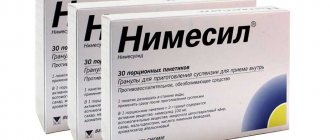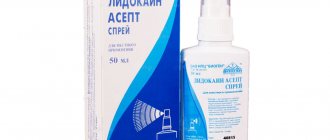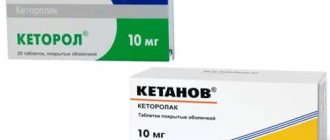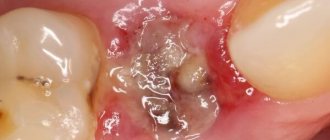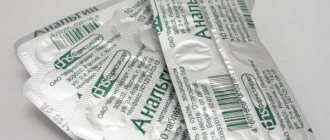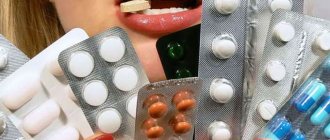Toothache is considered one of the most severe and unpleasant. It usually occurs suddenly when a person does not expect it. If this happens during the daytime, then you should immediately contact your dentist. But if this happened at night or on the road, then additional drugs and methods will be needed to help eliminate the pain and numb the tooth.
The causes of acute toothache can be different. This is an inflammatory process in the pulp cavity of the tooth and exposure of the dental nerve.
Possible causes of acute toothache
It is worth remembering the most common reasons:
- Caries. Bacteria destroy the surface of the tooth, resulting in a tooth reaction and discomfort when eating, eating sweets, or cold foods.
- Pulpitis. This is an inflammatory process that appears due to the fact that the patient did not treat caries in time. Pulpitis provokes acute toothache, which intensifies when drinking hot, cold drinks or food.
- Periodontitis. This is inflammation that occurs as a result of infection. Toothache has a pulsating form. It intensifies when mechanical stress is applied to the tooth.
- Periostitis. This is a special inflammation, it is accompanied by swelling of the gums. Afterwards, swelling and pain increase. Sometimes with periostitis, the upper jaw swells and the temperature rises. A pulsating toothache can be felt in the ears, eyes, and temples.
In what situations is Lidocaine in spray form contraindicated?
There is a list of contraindications to the use of the anesthetic in question. Such pathological phenomena include the following conditions:
- intolerance to the active substance,
- allergy to anesthetic,
- if the patient has had seizures in the past as a result of taking any form of lidocaine,
- frequent fainting,
- bradycardia,
- weak sinus node
- some pathologies of the heart and blood vessels.
The drug is not used when taking impressions of teeth.
Also, the spray is not used when taking impressions of teeth - the risk of penetration of the material into the respiratory system is too great. Before using the product, the specialist must make sure that the patient has no contraindications.
What should not be done in case of acute toothache?
It is important to help yourself without creating serious complications. It is important to know what you are prohibited from doing when you have an acute toothache:
- do not heat the tooth or cheek. Warm compresses stimulate blood flow to the area where the problem is. Because of this, an entire row of teeth can be damaged. It is better to apply ice for a short time;
- avoid bed rest. It is better to endure toothache on your feet or take a half-sitting position. Then the patient will be more comfortable. When a person is horizontal, the blood flow to the tooth increases. The nerve endings in that place are already irritated, so in addition the pressure also increases, the pain intensifies. In case of night pain, it is better to sleep on high pillows.
Pharmacology and pharmacokinetics - highlights
The active component of the spray effectively reduces the susceptibility of nerve endings, and this happens by blocking the conduction of the corresponding impulses. Acting systemically, the substance also provides an effect similar to that of antiarrhythmic drugs, but its use for therapeutic purposes does not in any way affect the functioning of the heart. If Lidocaine is sprayed near the respiratory tract, it also prevents coughing and gagging.
The drug also prevents coughing and vomiting.
The drug is quickly absorbed, and if a small amount of the drug enters the gastrointestinal tract, the active component is inactivated. The action occurs within 5-10 minutes. Metabilized in the liver by 90-95%.
Ways to get rid of acute toothache
Of course, with acute pain you should immediately go to the doctor, but if at a particular moment this is not possible, then it is worth remembering the main recommendations:
- Use of painkillers. Pharmacies sell many medications that have analgesic properties. The most popular are “Nurofen”, “Ketorol”, “Analgin”, etc. But before taking these drugs, it is important to carefully read the instructions. If there are contraindications, it is worth replacing the product with another one.
- Application of traditional methods. You can rinse your tooth with a baking soda solution. Pour warm water into a glass, add 1 tsp. soda and stir. You can add a few drops of iodine there (if you are not allergic). You can also use herbal infusions. They will help relieve dull throbbing pain. To temporarily relieve toothache, you should take St. John's wort, eucalyptus, oak bark, chamomile or sage. Dry tea is poured into a glass, poured with boiling water, and stirred. This drink should steep for 30 minutes. Afterwards, you should strain the infusion and you can rinse your mouth. But it is important to remember that the infusion should not be hot, but warm. To enhance the effect of rinsing, you can place cotton wool soaked in the infusion directly on the gum.
But temporary relief does not mean that you don’t need to go to the dentist! As soon as such an opportunity arises, you need to immediately make an appointment with a dentist, explain the situation and treat the aching tooth. So that this doesn't happen again!
In what cases is it used?
In dental practice, Lidocaine is used in various forms, including as a spray. The drug helps to anesthetize a limited area of the mucous membrane, and also promotes vasodilation without tissue irritation. Below are the main indications for use:
- for dental treatment in the presence of any dental diseases,
- for tooth extraction,
- for problematic teething,
- with stomatitis,
- as part of professional cleaning and removal of deposits,
- before opening cystic neoplasms.
The drug is usually administered by injection.
To eliminate sensitivity before treatment, the drug is usually administered by injection. In the form of a spray, it is sometimes applied before an anesthetic injection. Many people are interested in how long dental anesthesia lasts and wears off. Usually the effect occurs within 5 minutes, lasts for 1-2 hours, after which sensitivity is restored. Therefore, it is not recommended to eat for some time after treatment, since you can accidentally injure your tongue. The spray is also widely used for toothache at home.
Why is it important to preserve the nerve?
If a nerve is removed from a tooth, it is called dead, since it ceases to receive nutrition and all the necessary microelements. Such units may cause a lot of discomfort in the future. For example, dead teeth are believed to be very fragile and break quickly. Also, the enamel of units without pulp quickly darkens and is visually different from the dentition.
If you had to deal with surgical intervention to remove a nerve in a tooth, you shouldn’t worry. Modern restoration methods will help eliminate aesthetic defects
Products that should NOT be used:
1. Vodka rinses.
We will have to upset the men who rinse their mouths with vodka and claim that it helps. Alas, neither external nor internal treatment will relieve you of toothache. Although if you overdo it with the amount of “medicine”, it will dull the pain, but subsequently the vessels will dilate and all inflammatory reactions will only intensify. In addition, as a result of such treatment, a burn and ulcer of the mucous membrane is possible, as a result of which the picture of the inflammatory process will be blurred.
2. Smoking.
It is a common belief that smoking a cigarette dulls pain. For smokers, in principle, a cigarette is a distracting object. Just like alcohol, it has an adverse effect: nicotine constricts blood vessels and in the area where inflammation should be actively fought, the flow of necessary substances is suspended.
3. Warm compresses.
It is not recommended to apply heat to all inflammatory processes, as this only intensifies them.
4.Antibiotics.
You cannot start self-medicating with antibiotics, even if the doctor once prescribed “exactly the same” ones, since in the process of an incorrect course of treatment microbes that are very resistant to drugs can form.
Conclusion: if you dull the pain of a tooth affected by caries, pulpitis or periodontitis and put off visiting the dentist, then very soon you will have to resort to more expensive and complex forms of treatment.
Interviewed by Anna Sitnik
The main symptoms of inflammation of the ternary nerve
What are the main symptoms of trigeminal nerve inflammation and tooth pain? The location of the pain and its nature will depend on which nerve endings are inflamed. If it is the lower trigeminal nerve, then discomfort will be felt in the lower jaw. With inflammation of the middle trigeminal nerve - in the upper jaw. Inflammation of the superior trigeminal nerve causes pain to spread to the upper part of the face (eyes, forehead, temples and even ears).
With neuralgia, teeth can hurt either constantly or periodically (paroxysmal pain). Unpleasant sensations can begin suddenly and end just as unexpectedly. Sometimes it can be very difficult to identify the exact location of pain.
How do teeth hurt with trigeminal neuralgia? Discomfort can manifest itself as ordinary toothache or migraine. But, characteristically, this pathology never causes edema.
Remedies that can be used to dull the pain before meeting the dentist:
Rinsing.
These can be either home remedies, prepared with your own hands, or medicinal ones. Homemade ones include: a warm solution of water with soda, a decoction of chamomile, sage, calendula or oak bark, which can be used to rinse the tooth several times a day (on average three to five times), or you can simply keep it on the sore side.
Medicines
- ready-made concentrated alcohol solution, mixture of herbs - stomatophyte. Rinses such as Colgate, Blend - a - Med are additional oral hygiene and do not have an analgesic effect. There are also anti-inflammatory drugs such as Nice, Ibuprofen, Xefocam. It should be borne in mind that taking a very large amount of painkillers when visiting a doctor reduces sensitivity to local anesthetics.
What happens to teeth due to smoking?
So, what happens to the teeth of a heavy smoker?
Cigarette smoke passes through the oral cavity twice, on inhalation and exhalation, and interacts with tooth enamel for a long time. During this interaction, plant resins from tobacco leaves are absorbed into plaque, giving it an unpleasant yellow tint. Over time, plaque becomes more durable and turns into tartar deposits that are difficult to clean off. Coloring substances turn the entire surface layer of tooth enamel yellow, which leads to its increased fragility and susceptibility to carious lesions. Caries develops on many teeth at once. If a person continues to smoke, carious lesions grow and can lead to tooth loss. In addition, cigarette smoke damages the gums, leading to periodontitis, periodontal disease, and gingivitis, as a result of which teeth begin to loosen in weakened tissues. Due to vascular disorders, the salivary glands work worse and secrete less resin containing lysozyme, which fights microorganisms in the oral cavity and prevents the proliferation of carious bacteria. You can visually see how smoking negatively affects tooth enamel in the photo, which compares the teeth of a healthy person and a smoker.
Modern methods of treatment
There can be two outcomes: either remove the inflammatory process and restore the nerve in every possible way, or remove it completely. We will talk in more detail about the types of treatment below.
- Conservative actions. Please note that this is not available in every dentistry. Some doctors argue that removing the nerve is the only solution. This is due to the reluctance of complex work or the lack of experience of the doctor. In prestigious clinics, the dentist will expose the pulp, treat the area with antibacterial and anti-inflammatory agents, and then install a temporary filling. In just a couple of days, an x-ray should be taken. If the inflammatory process has subsided, you can safely install a permanent filling.
- Surgical methods. In this case we are talking about removing the nerve. First, arsenic is placed in the tooth to “kill the nerve,” and a temporary filling is placed on top. After a couple of days, the nerve is removed and a permanent filling is placed.
Smoking and implantation
Unfortunately, such concepts as smoking and dental implants are practically incompatible. Patients who smoke are much more likely to experience implant failure , especially if they smoke during osseointegration.
Smoking several months before the procedure is no less harmful. Much the same can be said about prosthetics – it is much more difficult for smoking patients to adapt to wearing prostheses, and they often experience complications and side effects.
IMPORTANT: Unfortunately, concepts such as smoking and dental implants are practically incompatible. Patients who smoke are much more likely to experience implant failure, especially if they smoke during osseointegration.
